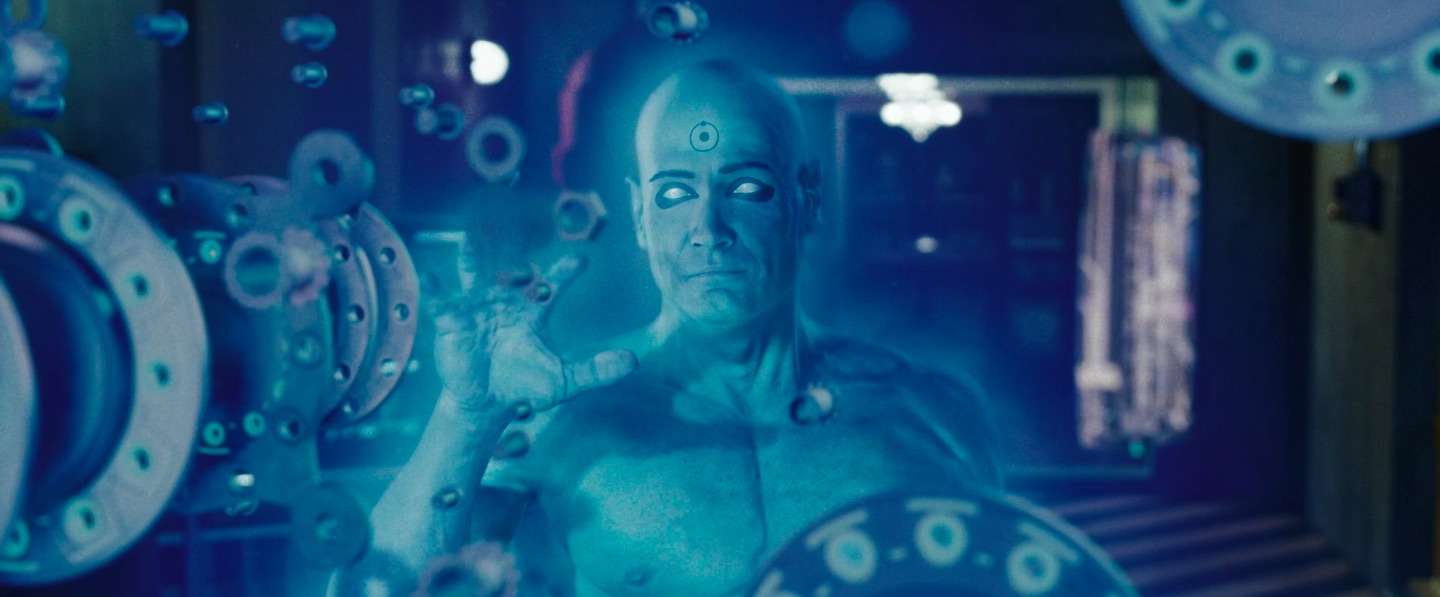Create a free profile to get unlimited access to exclusive videos, sweepstakes, and more!
Watchmen screenwriter on how Darren Aronofsky suggested film's biggest change from the comic

Nothing ever ends ... Zack Snyder's 2009 film adaptation of Watchmen is notable for being extremely faithful — at least visually — to the source material created by Alan Moore and Dave Gibbons. It's also notable for making a massive change to the ending, where Ozymandias enacts his master plan to bring about world peace in 1985. Instead of using the infamous psychic squid from the graphic novel, the movie version of Adrian Veidt (played by Matthew Goode) tricks the world into thinking that it's been attacked by the god-like Doctor Manhattan (Billy Crudup).
During a guest spot on the Script Apart podcast, screenwriter David Hayter revealed that the large narrative tweak came from none other than Darren Aronofsky, who was briefly attached to direct. According to Hayter, the Black Swan filmmaker was on board "literally for a weekend."
"I flew to New York and we chatted about it. When I came back, Paramount said, 'Darren can't do it, we've gotta get The Fountain finished,'" continued Hayter. "So, he stepped aside, but he sent me a note, saying, 'I have a friend, who's a physicist, who had an idea for the ending of the movie. And it was: 'What if Doctor Manhattan was the agent of destruction?' That just clicked into place in my brain and I was like, 'Of course, that's what it should be.' ... That was just a revelation to me and felt like an answer that fit the world pretty well ... Tying it back to Doctor Manhattan gave [him] a cool ending."
The squid, on the other hand, "was an additional supernatural element that was different from Doctor Manhattan and would have required a lot of explanation ... It would have taken another half an hour of screentime to just explain why a giant squid — how did it get there? What was the impact? Why did it have psychic powers? It was just too much in a movie packed with what I would argue is the more important stuff, which is the character journeys."
Hayter, who ended up sharing script credit with Alex Tse, also dished on Paul Greengrass's unrealized adaptation, which would have been set in the modern day and taken a more documentary-inspired approach
"The world of Watchmen is so strange; it's our world, but it's been altered in many ways. The timeline has been changed," Hayter said, explaining why the Bourne director wanted the story to take place in 2006. "I think Paul felt, and I don't think this is wrong, that adding a period aspect to it, putting it in the '80s, would make it difficult to know what was '80s and what was Watchmen."
Greengrass's Watchmen (whose ending involved Dan Dreiberg killing Adrian with the Owlship). was on the verge of shooting in the early 2000s before the studio went through a leadership change and the project was axed. Still, Hayter estimated that 40-50 minutes of previsualization do exist for the canceled movie. Hopefully, we'll get to see those unused elements someday. Your move, Warner Bros. We leave it entirely in your hands.
A big-screen translation of the celebrated graphic novel languished in development hell for decades, passing from one director to the next, including Terry Gilliam and even Hayter himself. You can check out test footage from the latter's version here.
Earlier this week, it was announced that Tom King and Jorge Fornés were working on a Watchmen maxiseries about Rorschach, which is slated to go on sale this fall from DC's Black Label.


























